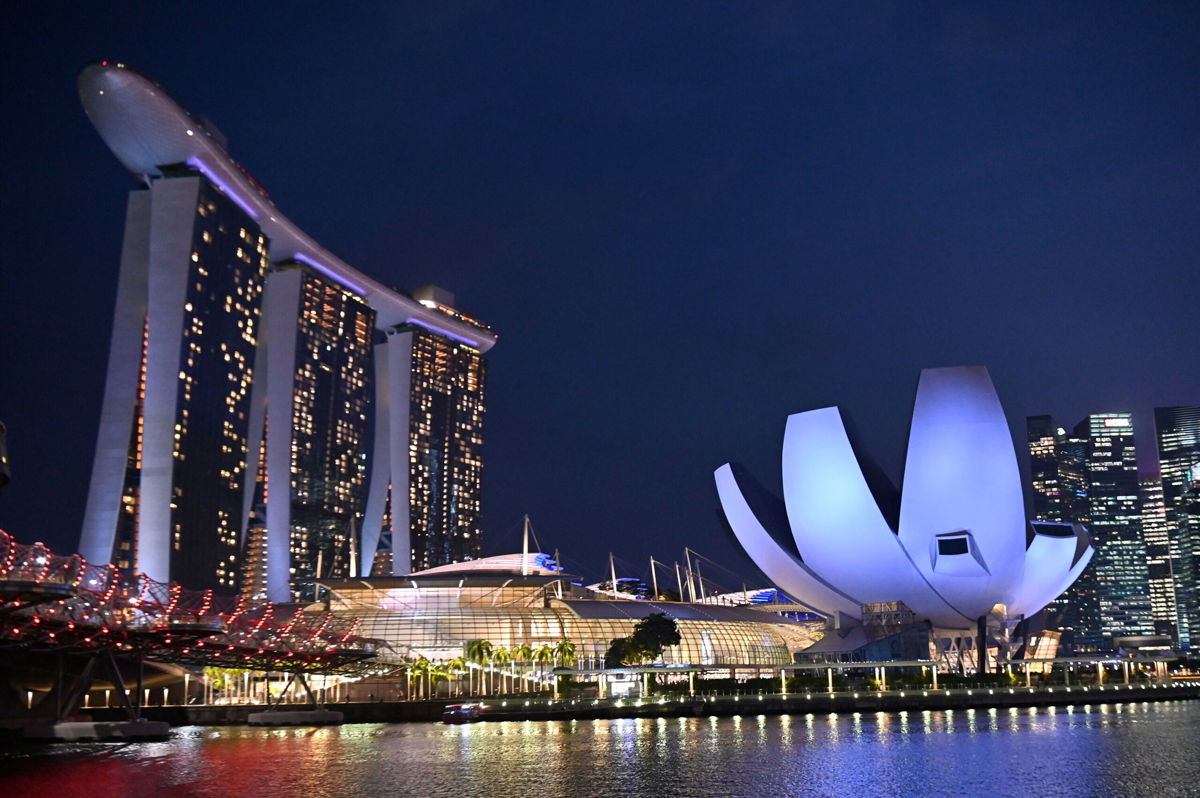Travel to Singapore during Covid-19: What you need to know before you go

If you're planning to travel to Singapore
CNN staff
If you’re planning to travel to Singapore, here’s what you’ll need to know and expect if you want to visit during the Covid-19 pandemic.
The basics
Like many countries in the region, Singapore has abandoned its “zero Covid” strategy in favor of a more progressive approach.
The city-state is currently easing out of a record-high wave of infections and now relaxing curbs that were reimposed in September as officials battled a surge in infections fueled by the highly contagious Delta variant.
Singapore has vaccinated more than 88% of its 5.45 million population, according to data from Johns Hopkins University.
The land border connecting Singapore and Malaysia reopened for vaccinated people only on November 29. Many Malaysians commute to Singapore for work or school, making it one of the busiest land crossings in the world. It closed in March 2020.
What’s on offer
The quintessential modern Asian city, Singapore’s glittering skyscrapers and waterside setting make it easy to love. Throw in some of the world’s best street food, served in its ubiquitous hawker centers, and the lush rainforest of Bukit Timah Nature Reserve, and the city-state has more than enough to satisfy fascinated tourists.
Who can go
South Korea and Singapore launched mutual “vaccinated travel lanes” on November 15.
Fully vaccinated travelers coming from countries taking part in the VTL scheme are required to show proof of a negative PCR test but will not have to quarantine. Children under age 12 who cannot be vaccinated are permitted to enter as long as they are accompanied by an adult.
Travelers from these places must apply for an Air Travel Pass online before flying to Singapore.
Eligible visitors will need to show proof of a negative PCR test taken within 48 hours of the scheduled flight and will have to take another one upon arriving at Changi Airport. On days three and seven of their stay, they will need to test again at a designated clinic in Singapore.
A list of government-approved clinics for Covid-19 tests is here.
More info can be found on the Singapore government’s Safe Travel website.
What are the restrictions?
Singapore nationals and permanent residents are allowed to enter, but must have proof of a negative PCR test taken within 72 hours of departure and spend up to 10 days in quarantine after being served a stay-home notice (SHN) on arrival if not entering via the VTL scheme. This can be undertaken in a dedicated SHN facility, or at their place of residence.
The city-state announced that it will accept the IATA digital travel pass, colloquially called a vaccine passport, from May 2021. This pass will store data confirming that a traveler has received the Covid-19 vaccination from an accredited laboratory. As the pass is still in the planning stages, Singapore has not released more details about whether holders will be able to skip or shorten quarantine or have other benefits.
Those traveling from countries with an Air Travel Pass agreement must apply for entry here between seven and 30 days before departure and submit health details and all travel movements over the previous 14 days via a SGArrivalCard. They must also download the Trace Together app to their mobile device and pay for an on-arrival PCR test, at a cost of SGD$196 (US $148). This applies to all travelers aged six and over.
Anyone entering Singapore for any reason will get a rapid Covid-19 test upon arriving at the airport. All travelers will also have to prove they have travel insurance that can cover at least $30,000 in expenses if necessary.
Layover passengers are permitted in specific areas of the airport. They are not allowed to leave these designated areas unless they have a confirmed booking for one of Changi’s two airport hotels, and if going there they must be accompanied by an airport staff member.
What’s the Covid situation?
Singapore is currently easing out of its latest round of Covid-19 restrictions. However, the ascent of the Omicron variant has led the country to be more cautious.
Flights and bus trips in the vaccinated travel lanes (VTLs) have been paused between December 23 and January 20 in an attempt to prevent more infections. After January 20, these lanes will reopen but at reduced capacity.
Singaporean citizens and residents who are returning from overseas trips have been urged to be more careful than usual amid the Omicron variant, which has been detected in the majority of new cases in the country. Returning travelers are asked to avoid group gatherings, visiting crowded areas like malls or participating in mask-off classes in gyms and fitness centers for at least one week after coming back to Singapore, even as they test negative for Covid.
On January 5, the Singaporean government urged locals to get Covid booster shots. As per the new regulations, one’s “fully vaccinated” status will expire 270 days after getting the second vaccine unless the status is “reset” by getting a booster.
As of January 6, Singapore has recorded 282,401 confirmed cases of the coronavirus and 834 deaths.
What can visitors expect?
All visits must be registered either through the Singapore government’s Safe Entry and Trace Together apps or by using a Trace Together token, which are available from community centers. Alcohol is not available in restaurants after 10.30 p.m.
Masks must be worn at all times when in public, except by those under six. There are exemptions for eating and exercising.
Useful links
Our recent coverage
The travel bubble with Hong Kong may have been delayed, but Singapore residents have been enjoying “cruises to nowhere.” The city-state is of course known for its food, and has featured in our lists of the world’s 50 best dishes and 50 best desserts.
The-CNN-Wire
™ & © 2022 Cable News Network, Inc., a WarnerMedia Company. All rights reserved.
Joe Minihane, Julia Buckley and Lilit Marcus contributed to this report